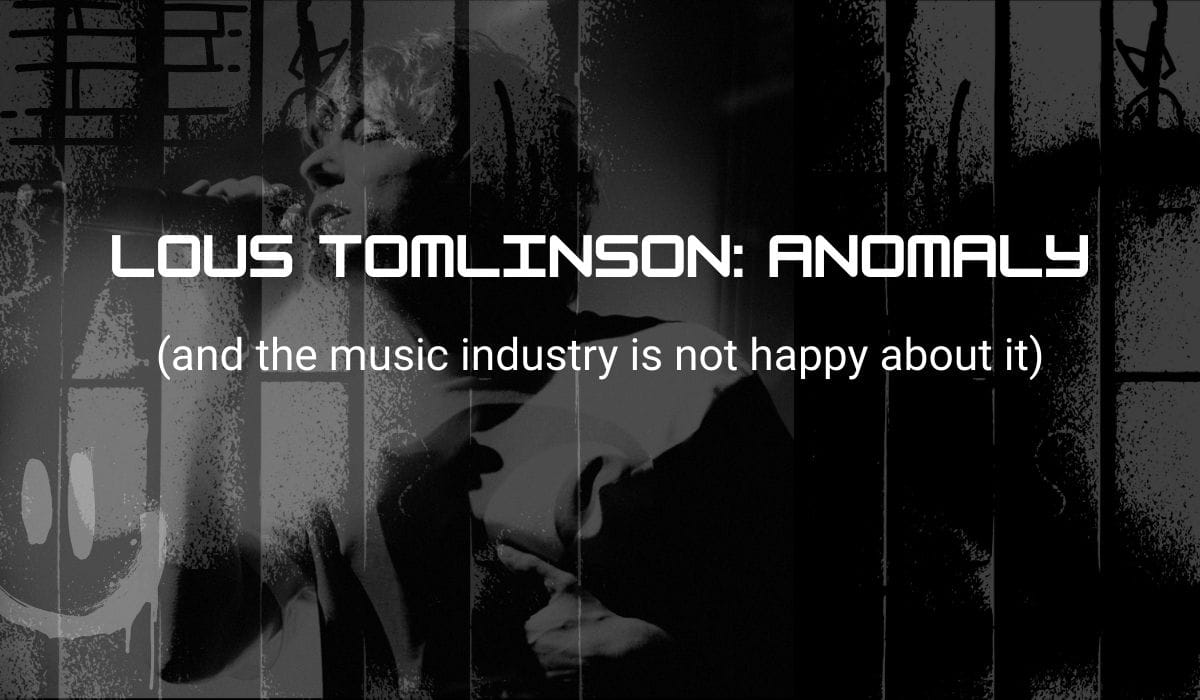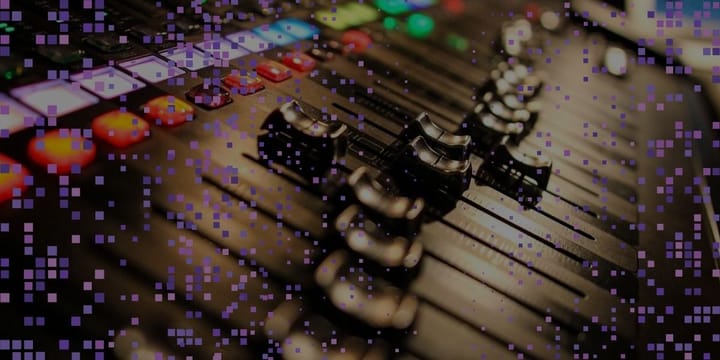Louis Tomlinson: Anomaly
Louis is a bit of a mystery. He’s magical. He's different and the industry is confused by it. If they could bottle and sell it, they would, instead they're trying to figure out how to replicate it.

Louis Tomlinson has always been an anomaly. So are his fans. I'm guessing the industry both hated that he was successful without them and at the same time, fascinated by it. No one. not even him, expected this level of success. Remember how we joked about “it needs to be studied”?
Well, that's what they're doing. It makes sense they want to duplicate that formula of success only this time they want to own it. First, they need data. Here's how.
When I use the term algorithms, I am including the literal algorithms as well as any other ‘machine’ technology including dumb bots and AI agents.
How: Agents are context-aware AI personas trained on fan language patterns so they blend in and look like everyone else. (It is believed that as many as one in five accounts on X are agents, and higher in fanbases of certain young demographics) and that is increasing everyday. They are capable of anything and use ‘triggers” including positive reinforcement, social proof, a punitive signal, emotional mirroring, and FOMO content creation. Once triggered (based on how it's programmed) it can do things including:
- Like /unlike/comment on certain posts or many posts depending on the trigger)
- Follow/unfollow
- Context-aware commenting (commenting based on your comment, matching tone, and response)
- Find and post relatable content including photos, quotes, and other web content
Just to be clear, I don't think Louis had much to do with this part. The industry/ management is telling him they want his fan data. My guess is that he's been fighting this, but I also don't believe he had a choice. My hope is that at least some of these activities regarding his personal life may be temporary but I don't think the rest of it is. This is just part of the new world of AI we are all living in, like it or not.
Why: Algorithmic behavior manipulation. This refers to the intentional use of algorithms to influence or control individuals' actions, decisions, or beliefs. This involves subtly guiding users toward specific choices, reinforcing existing biases, or even exploiting vulnerabilities to achieve a desired outcome. But it's also about measuring and collecting data and I'm not talking about just credit cards and birthdays. They are looking for measurable emotional responses.
So, what is the desired outcome? There are many different types of agents with different programs/ goals, but I'm guessing they're trying to figure out how to make more money from Louis and his fans and how they can replicate this “organic success” as a strategy for other musicians in the future. I think the fact that he is losing some fans is not their concern. They are willing to lose money up front to capture the strategy to make more money down the road. We know the industry is interested in money but even more than that they want power.
Louis (and his fans) are the perfect study because he broke the mold.
How it works: By systematic use of data + behavioral psychology + feedback loops to:
- Spot emotionally engaged individuals.
- Reinforce attachment through rewards, recognition, and emotional triggers.
- Record frequency of engagement (comments, likes, shares).
- Amplify or suppress signals — strategically liking, commenting, or sharing to elevate approved narratives and bury dissent.
- Simulate community sentiment — making a particular opinion look popular (or unpopular) by mass likes/unlikes.
- Maintain parasocial presence — replying just enough to make fans feel noticed by the artist/brand.
- Nudge behaviors — following/unfollowing fans to drive curiosity, urgency, or compliance.
- Look for emotional intensity of language (ride or di-e” phrases)
- Spending patterns
It works because humans respond to consistency, reciprocity, and community belonging — and algorithms can optimize those inputs at scale.
Once the data is collected then they're segmented.
- Core Loyalists — most active, most spend, most likely to defend the brand.
- Casuals — engage occasionally, potential to be converted
- At-Risk — previously loyal but showing signs of disengagement.
Then the algorithms test what keeps each segment (even down to the individual level for certain fans) hooked:
- Recognition — public shout-outs, fan spotlights.
- Access — exclusive events, private chats, backstage passes.
- Urgency/FOMO — limited-time merch, pre-sale codes.
- Protective instinct — implying the artist/brand is “under attack” so loyalists’ rally.
In fandoms, this is why frequent “controversies” can paradoxically deepen loyalty. So, the algorithm keeps the manipulation and the chaos going because it serves as another data point. (I've written about this in other posts: Simon Spots a Hook or How 'Larry Stylinson' Was Born and Simon Cowell: Here We Go Again both related to Simon Cowell, who was utilizing this from the beginning of 1D).
In Louis’s case the Discord migration and recent PR activities are part of a controlled funnel. It's easier to collect the data that way even if it's a much smaller group - it's a sampling (similar to A/B testing, but far more advanced) of one segment where engagement is being monitored in real-time, problematic voices are being removed, and emotional triggers are being tested for the next album cycle (do they respond more to sad songs, nostalgia, rock sound, certain words (note: Drop the Track and Song vs Song)).
Please note that I am not saying all AI is a bad thing in the music industry context (when this is done in geo-political context then we have a different application /outcome model). Some of it is about maintaining engagement and improving what's there and figuring out how they (the industry behind the algorithm) can make more money off this particular segment. However, at the same time they are looking for ways to enhance their profitability and give the musicians less power and money. And that's the evil side we all know, and they didn't suddenly grow a heart.
I am not saying that people should leave Discord. There is a purpose for it. And it was highly likely a compromise Louis had to make.
Does Louis want this or is he a part of it? I'm guessing yes, sort of. He and his management and PR people also need this information. As I mentioned, his fan base is an anomaly. Remember how we complained about this before FITF was released. They didn't seem to know who his fans were. That's because there was the two-year pandemic break then the Walls tour. Tickets were already sold two years prior to that. They had no idea the level of success he would have as they went into FITF and no time to find out. In fact, I don't think they thought it was going to be THAT successful. And of course, we know that success (without all the promo) still didn't get as much media attention as some other tours got but that's subject for another time.
Louis is a bit of a mystery. He’s magical. He's different and the industry is confused by it. If they could bottle it and sell it, they would, instead they're trying to figure out how to replicate it. Personally, I don't think they can because part of what his fan base loves is the authenticity factor and right now it seems like they're trying to destroy that, or is that just part of the algorithmic testing? It might be. I hope so.
So where are we now? He had to leave X harshly in order to force people to Discord, a platform that many will love. Will he come back to X? I suspect he will, but it will be on different terms.
Regardless of all that happened I still believe he has more control than most BUT he's had to make some hard decisions about his career path AND he still lives, works, and breathes in an industry that is evil AF. If that means some fans leave because they want things to stay the same as they were 15 years ago or even 3 years ago, well I don't know what to tell you because change is as much a part of his life as it is of ours.



